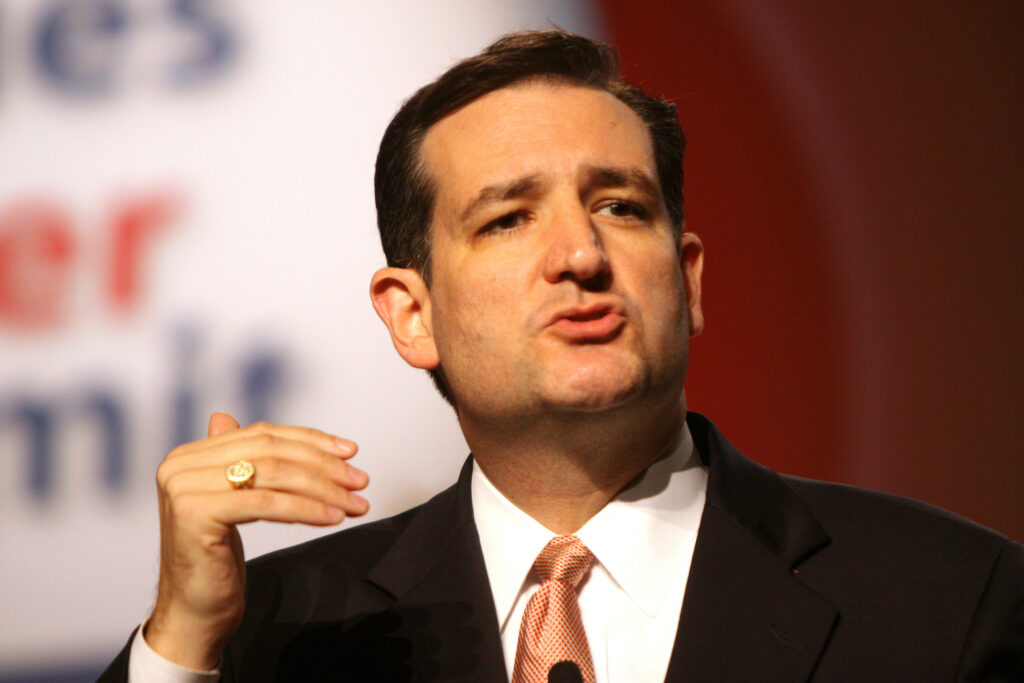Texas Senator Ted Cruz targeted Warner Bros. upcoming “Barbie” flick over the inclusion of imagery his office flamed as Chinese “communist propaganda.”
The Margot Robbie-Ryan Gosling flick about Mattel’s iconic doll is anticipated to be a box office smash when it releases on July 21, but is already embroiled in international controversy prior to its debut.
The Greta Gerwig directed movie caused a stir in Southeast Asia over the inclusion of a map that depicts a group of islands in a hotly contested area of the South China Sea as belonging to the communist country.
“I guess Barbie is made in China….” Cruz tweeted in response to a Reuters article.
I guess Barbie is made in China…. https://t.co/CDB1IzZcvm
— Ted Cruz (@tedcruz) July 3, 2023
The piece outlined how Vietnam has banned “Barbie” from being distributed in the country over a scene that includes a map used by China, which displays a “U-shaped nine-dash line.”
The area illustrates China’s claims over a continental shelf where Vietnam was awarded oil rights in a 2016 arbitration ruling by a court in The Hague, which the CCP refuses to acknowledge.
“We do not grant license for the American movie ‘Barbie’ to release in Vietnam because it contains the offending image of the nine-dash line,” the head of Vietnam’s Department of Cinema said about “Barbie.”
The Philippines are considering following in Vietnam's steps and banning ‘BARBIE.’
A brief scene in the movie shows the ‘nine-dash line’ (China's controversial territorial claims in the South China Sea) on a map of Asia, which multiple nations say violate their sovereignty. pic.twitter.com/17QcTs90c9
— Pop Base (@PopBase) July 5, 2023
The country has previously refused to release DreamWork’s 2019 animated flick “Abominable” and 2022’s Tom Holland adventure film “Uncharted” over the insertion of maps that backed up China’s claim over the area.
According to the National Review, other East Asian countries, including The Philippines, Taiwan, Malaysia, and Brunei, which all have claims on the area, are considering blocking the film from distribution.
Do not forget the movie Abominable by DreamWorks. They disrespected our country Philippines. Barbie film seems good, but I won't support if 9 dash line in China showed here even if it's fictional.
My online streaming is waving on this film tho lol. https://t.co/PbCo0hCZRl pic.twitter.com/cZKPgpVRFs
— Claire 🌸🎀 (@claireyu) July 5, 2023
“The movie is fiction, and so is the nine-dash line. At the minimum, our cinemas should include an explicit disclaimer that the nine-dash line is a figment of China’s imagination,” Philipino Senator Risa Hontiveros said in an interview on Tuesday.
In a statement to the Daily Mail Cruz’s spokesperson said that the “Barbie” film seems to be “pushing CCP propaganda.”
“Senator Cruz has been fighting for years to prevent American companies, especially Hollywood studios, from altering and censoring their content to appease the Chinese Communist Party,” the statement read.
“China wants to control what Americans see, hear, and ultimately think, and they leverage their massive film markets to coerce American companies into pushing CCP propaganda—just like the way the Barbie film seems to have done with the map.”
The spokesperson concluded that Cruz “deserves credit for reversing these trends,” thanks to 2022 legislation he authored to prevent the government from collaborating on “films that engage in exactly this kind of censorship.”
China’s Foreign Ministry spokesperson Mao Ning said that Vietnam shouldn’t “link the South China Sea issue” with the film’s release.
“China’s position on the South China Sea issue is clear and consistent,” the official noted.
Like Cruz, many other US lawmakers aren’t thrilled about the way China has been strong-arming Hollywood to alter messaging in movies.
“Top Gun: Maverick” was forced to digitally erase Taiwanese and Japanese flag patches from Tom Cruise’s character’s bomber jacket to appease the country’s censors.
The Department of Defense announced that it will no longer partner with filmmakers that bow to China, like they did with the studios that produced the “Top Gun” sequel.
A document obtained by Politico stated that the Pentagon would “not provide production assistance when there is demonstrable evidence that the production has complied or is likely to comply with a demand from the Government of the People’s Republic of China.”
The DoD’s guidelines were created to ensure that filmmakers were not censoring their “content of the project in a material manner to advance the national interest of the People’s Republic of China.”
Under the new policy, production studios who work with the DOD will be assigned an official to work directly on the film, and “censorship demands” from the CCP will have to be submitted in writing to the Pentagon and granted approval from the department.

